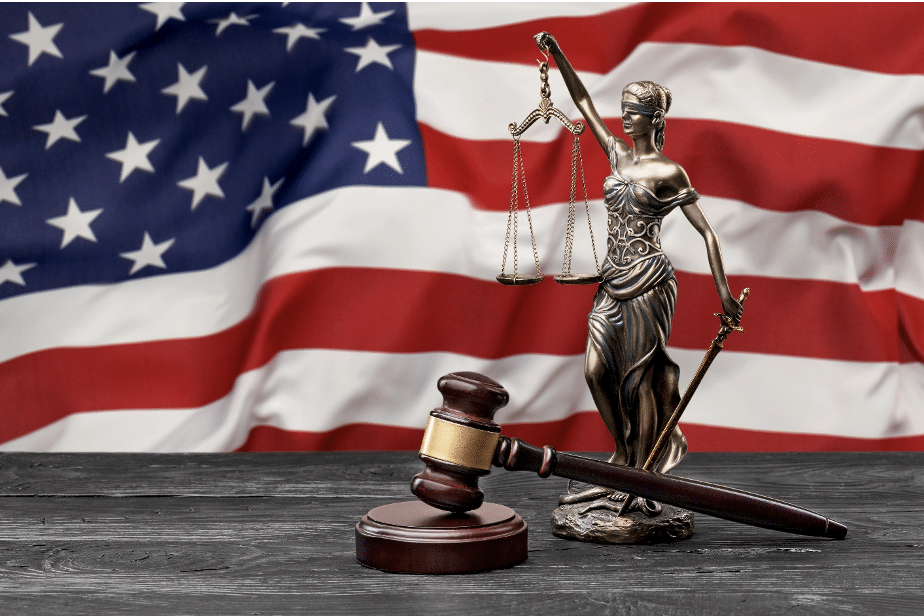Menu
BVI IP Holding Company Subject to US Jurisdiction Due to Trademark Enforcement
November 10th, 2025
The 11th Circuit has reversed a decision by a Georgia federal district court dismissing trademark infringement and cancellation claims against an intellectual property (IP) holding company headquartered in the British Virgin Islands (BVI).
The circuit court found that the district court had personal jurisdiction over the defendant because it had voluntarily assumed interstate obligations in the United States.
The case is Jekyll Island-State Park Authority v. Polygroup Macau Ltd.
Since 1988, Jekyll Island State Park Authority has operated Summer Waves Water Park in Jekyll Island State Park in Georgia. In 1990, Jekyll obtained a federal trademark registration for SUMMER WAVES, Registration No. 1,593,514.
Jekyll Island advertised its park and sold SUMMER WAVES-branded merchandise nationwide via its website, www.summerwaves.com.
Polygroup Macau is an intellectual property holding company incorporated and registered in the BVI. In 2015, Polygroup Macau registered US trademarks for SUMMER WAVES, Registration No. 4,862,983; SUMMER WAVES 3D, Registration No. 5,050,873; and SUMMER WAVES ELITE, Registration No. 4,862,985, for use on recreational pools and pool-related products.
In 2021, Jekyll Island discovered that Polygroup Macau had registered nearly identical SUMMER WAVES marks, after Polygroup Macau’s general counsel asked to buy Jekyll Island’s domain name—summerwaves.com. Jekyll Island sued for trademark infringement and to cancel Polygroup Macau’s marks.
Polygroup moved to dismiss for lack of personal jurisdiction under Fed. R. Civ. P. 12(b)(2), or for failure to state a claim for trademark cancellation, Fed. R. Civ. P. 12(b)(6).
The district court concluded that because Polygroup Macau did not sell products in the US using its trademarks—it only permitted other related entities to do so—the “causal connection” between Polygroup’s activities in the US and Jekyll Island’s trademark claims was too “attenuated” to support personal jurisdiction.
The circuit court disagreed, saying that personal jurisdiction does not require “a strict causal relationship between the defendant’s in-state activity and the litigation.”
The circuit court found that Polygroup purposefully availed itself of the benefits of US law to protect its substantial portfolio of intellectual property, and thus that a federal court may hold it “to account for related misconduct.”
The court noted that
Polygroup Macau is not a revenue-generating entity. It does not engage in customer sales anywhere in the world. It does not use the SUMMER WAVES marks or any other trademarks in United States commerce or anywhere else in the world. Polygroup Macau does not directly sell products into the United States, own property in the United States, have bank accounts in the United States, or pay taxes in the United States.
However, the court stated, Polygroup Macau is a wholly owned subsidiary of Polygroup Asia Pacific Limited (another BVI company), which oversees a group of related “Polygroup” entities that manufacture and distribute consumer goods. Polygroup factories and operations in China, Thailand, Europe, and the US employ more than 15,000 people, and the group distributes products in more than fifty countries.
Polygroup Macau owns the intellectual property used by the other Polygroup entities, including the POLYGROUP trademark.
However, Polygroup Macau
does not formally license its SUMMER WAVES trademarks. Instead, it holds the marks and “allows” or “permits” other Polygroup companies and their customers to use them on products that are sold in the United States.
Also,
Polygroup Macau has not executed a written or oral agreement for the licensing or distribution of products using its marks and does not collect royalties for their use.
The circuit court explained that Polygroup Services has imported, marketed, and sold SUMMER WAVES-branded products—including inflatable pools, pool toys, and water slides—in the United States. It purchases these products from other Polygroup member companies.
Major US retailers, including Costco, Walmart, Home Depot, Amazon, Target, and Michaels, have sold hundreds of products under Polygroup Macau’s SUMMER WAVES marks.
The court noted that Polygroup Macau has been a party to at least thirty-four patent and trademark lawsuits in US courts, including being the sole plaintiff in at least four suits to enforce its IP rights.
The circuit court noted that for Jekyll Island to establish jurisdiction over Polygroup Macau, it must establish:
- Polygroup Macau purposefully availed itself of the laws of the United States, and
- Jekyll Island’s claims arise out of or relate to at least one of Polygroup Macau’s contacts with the United States.
The court pointed out that
A corporation that chooses to avail itself of the protection of a forum state’s laws by engaging in business in that state must assume certain risks—such as the risk of litigation.
Also,
A court may exercise specific personal jurisdiction over nonresident defendants who “purposefully direct[]” their “activities toward forum residents” or “purposefully derive benefit” from their in-forum activities
In this case, the court found that Polygroup Macau enjoyed the benefits and protections of US law by:
- registering and maintaining dozens of trademarks with the USPTO, and enforcing its rights in US courts;
- “allowing” its sister companies and their customers unrestricted use of those trademarks to sell products in the US; and
- using its trademarks in marketing targeted explicitly at US consumers.
The circuit court rejected the district court’s conclusion that it lacked personal jurisdiction over Polygroup Macau because of “the attenuated causal connection” or lack of “substantial causal relationship” between Polygroup Macau’s registration and licensing of the SUMMER WAVES marks in the United States and Jekyll Island’s infringement claims.
Said the circuit court,
Even an arm’s length intellectual property licensing agreement with a party that “resides or regularly does business in the forum” may support a finding of minimum contacts [to support jurisdiction].
The court concluded:
While Polygroup Macau seeks all the benefits of United States law to protect its intellectual property, it attempts to use its corporate structure to avoid accountability when it violates the rights of others. But Polygroup Macau’s acknowledgment of United States law cannot depend on its status as a plaintiff or defendant. And it certainly may not wield the Due Process Clause “to avoid interstate obligations” it has “voluntarily assumed.”
Thus, the circuit court reversed the district court’s dismissal for lack of personal jurisdiction over Polygroup Macau and remanded for consideration of Jekyll Island’s claims on the merits.
Categories: Trademarks









